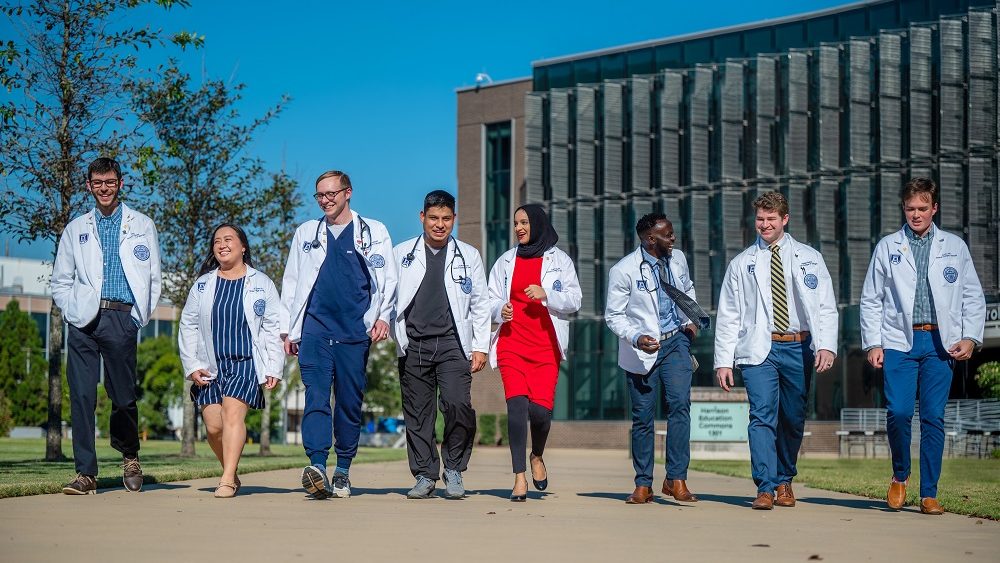The Hearst Foundations recently awarded Augusta University $100,000 to support the Medical College of Georgia. This gift will go toward scholarships for students in the MCG 3+ program, which is designed to offer accelerated medical training to those who commit to practice primary care in rural or underserved Georgia after completing school.
Despite its recent ranking as the 8th largest state in the U.S. by population growth, Georgia consistently ranks among the 10th worst state for many of the country’s most prevalent medical conditions, averaging some of the highest rates of stroke, heart disease and cancer. A major contributing factor for these disparities is Georgia’s ongoing shortage of primary care physicians and lack of access to basic health care services. To address these critical shortages, the Medical College of Georgia at Augusta University redesigned its four-year core M.D. curriculum, creating the MCG 3+ program, one of the most significant curriculum redesign efforts in MCG history.
“Going back home to practice or to a similar area — with a similar need for physicians — has always been my goal. That’s what I grew up knowing and I feel like there’s an acute need that sometimes gets overlooked,” said Scotty Hall, a general surgery student from Dexter, Georgia, in rural Laurens County. “MCG does an excellent job prioritizing the needs of the people across the state and especially people in rural areas of the state, but outside of here, many people just don’t realize how big the need is. Outside of Atlanta, it’s easy to find rural and underserved areas.”
Founded by William Randolph Hearst in 1946, the Hearst Foundations are national philanthropic resources for organizations working in the fields of culture, education, health and social services. The Foundations’ focus is to help those in need, those underserved and those underrepresented in society.
“As the state’s only public medical school, it is our duty to ensure we help produce the physicians we need to keep Georgia healthy,” says Dr. David Hess, MCG dean. “The physician shortage, especially in rural and underserved areas, is a huge problem that will only worsen over time. Primary care physicians help improve a community’s overall health by managing chronic conditions on an outpatient basis. They also bring more jobs, attract new businesses and strengthen the economy. By placing more of them in underserved areas, we’ll help ensure a healthy future for every corner of the state.”
For more information about supporting the MCG 3+ program, please visit the Philanthropy & Alumni Engagement website.

